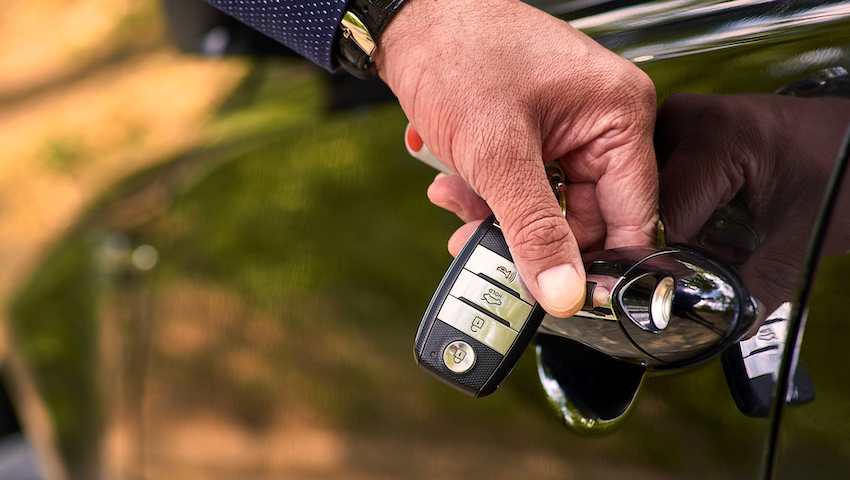How to prevent your electric vehicle from being stolen
With a rise of electric vehicle thefts being reported, EV Powered looked at how you can stop your EV from being stolen.
Two weeks ago, journalist Giles Coren posted on Twitter to say that his Jaguar I-Pace had been stolen for the second time in three months.
The Metropolitan Police service eventually found his £65,000 car, having initially closed the case after just 47 minutes of it being opened. After getting on his bike to try and find the car himself using the cars tracking system, it later transpired that the Police had found the vehicle.
Coren’s case represents a rise in keyless car thefts, otherwise known as relay thefts, which applies to most electric vehicles.
The National Police Chiefs’ Council has issued a warning to owners of keyless cars, with provisional figures from the Council showing a 3.1% increase between May 2021 and June 2021 in vehicle crime. The bulk of this increase is from keyless theft.
National Police Chiefs’ Council lead for Vehicle Crime, Assistant Chief Constable Jenny Sims, said: “Car theft is a serious crime that causes significant distress and upset to owners and police are putting considerable resources into tackling it and bringing those responsible to justice.
“Whilst the rapid development of technology has dramatically improved the experience of drivers it has also allowed criminals to exploit weaknesses in electronic security. We are working closely with car manufacturers to help them design out crime by sharing intelligence and equipment seized from criminals. We are already making substantial progress in this regard.”
So, how exactly is a ‘keyless car’ stolen? EV Powered spoke to Inspector Peter Wall of Thames Valley Police to find out.
“Keyless car theft is the phrase given to the theft of cars with a keyless entry system,” he said. “Criminals use equipment to intercept the signal from the key inside the house and use this to unlock and start the car and then drive away. This means that even if your car and home are secure, thieves can still unlock, start and steal your car.”
Wall added that as keyless cars are becoming more prevalent on our roads, this method of vehicle theft is becoming more common nationally and so it is important to take steps to prevent it.
According to Wall, there are four simple steps that you can take. He said: “There are simple steps that you can take to reduce your risk of falling victim to this type of crime and they can be remembered as Box It, Bag It, Block It.
“Box It: placing your keys in a metal tin can be enough to block the signal from travelling any further.
“Bag It: another option is to purchase a signal-blocking pouch and keep your keys in this when they’re not in use.
“Block It: as an extra security measure where possible, consider using other vehicles to block your keyless car in so it can’t be easily driven away.
“Some keys have an option to turn off the signal transmitted from it, sometimes with the double press of a button, so it’s worth checking your manual to see whether yours has this functionality.”
Whilst there may be an increase in these types of thefts, national police agencies have made significant gains against these criminals and arrests are being made across the UK, according to the National Police Chiefs’ Council.
Leicestershire Police recently secured the conviction of seven members of an organised crime gang who were involved in more than 50 keyless thefts involving vehicles totalling £2.4 million. They were jailed for a total of more than 30 years.
Earlier this month in Liverpool, five people were sentenced to a total of more than 23 years in prison after being convicted for a range of offences including the theft of keyless cars totalling around £2.6 million.
Cheshire Constabulary also secured the conviction of a man for several car and key burglaries and he was sentenced to more than 7 years imprisonment last week.
Assistant Chief Constable Jenny Sims added: “These crime gangs care little for the impact they have on ordinary people but they should know that police are coming after them. We are carrying out proactive operations every single week and as recent results show, they can expect to spend a significant time in prison when we catch them.”
